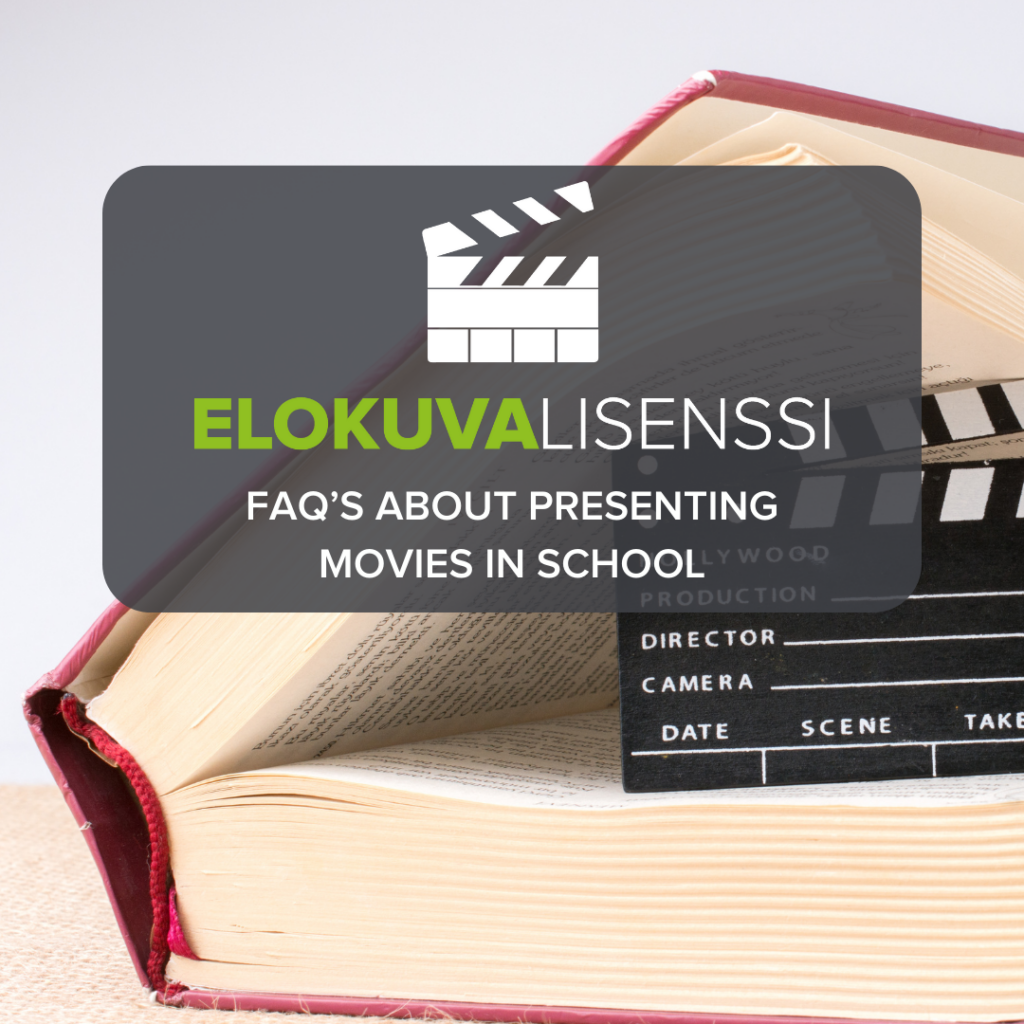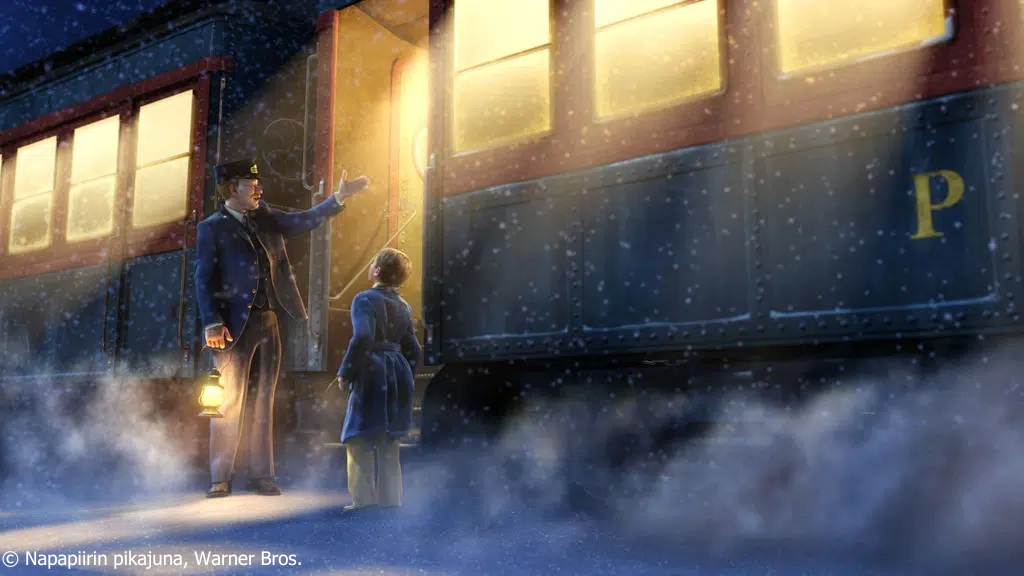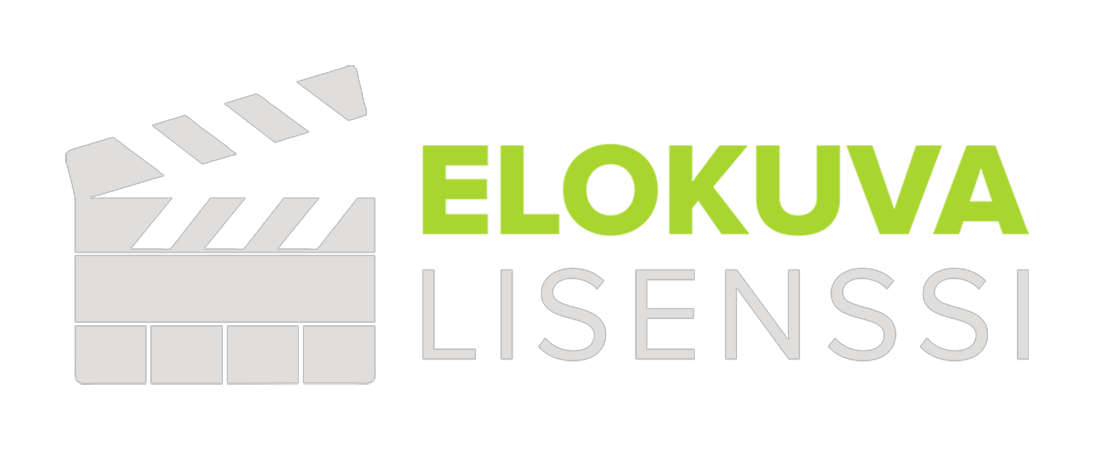
ArticlesPublished:
Frequently Asked Questions about Presenting Movies in School
Movies are familiar to young people, and their role in education is significant. In 2009, Koulukino ry surveyed film education among teachers, with 385 teachers nationwide participating. A considerable percentage of the responding teachers (73%) reported using movies in their teaching. The primary motivation for this was their desire to use movies as teaching material for their lessons: movies were seen as supporting and deepening the topics taught. The number of services enabling the presentation of movies has grown significantly in recent years. We believe that with the help of these tools, the frequency of presentations has also increased.
The situation regarding legal presentations is concerning. Copyright law requires obtaining permission from the creators or rights holders for the public showing of movies in schools. According to the Elokuvalisenssi customer registry in January 2021, only one-fourth of the schools within the ten largest cities in Finland had a valid license. There are regional variations; for example, in Helsinki, over half of the schools have proper licenses. Among the ten largest cities, there are places where no licenses have been obtained for municipal primary schools.
Do we need a screening license if we want to show movies to our students?
Yes. Movies bought from a store, rented, streamed, or recorded from TV are generally intended for private use. Therefore, to show a movie in a context other than private use, a screening license must be obtained, regardless of the source of the recording. Events that are not publicly announced and involve only a few individuals based on friendship are not considered public, according to the Copyright Council.

Can we show our students a short scene from a movie under the quotation rule, or do we need a screening license for this?
You need a screening license even if you intend to show only a small clip from a movie. The right to quote is intended for situations where a work is borrowed to create a new work. Typically, this occurs in scientific work, where others’ published ideas are used as part of one’s publication. The right to quote does not allow the use of a movie or its part in an educational setting for illustrative or embellishment purposes without a screening license. Even when creating a new work, the quotation can only occur to the extent necessary for the purpose.
Where should we apply for screening licenses to show movies at school?
Elokuvalisenssi grants non-theatrical public screening licenses necessary for the use of movies in private use distribution. It represents major international and Finnish film and production companies, including Walt Disney Pictures, Universal Pictures, Warner Bros, Artista Filmi, Aurora Studios, and Helsinki-Filmi. You have a selection of tens of thousands of movies and documentaries. Elokuvalisenssi provides screening licenses to support curriculum-based goals.
How should we continue if the movie is not found in Elokuvalisenssi’s selection?
If the movie you want is not included in our catalog, you can request a screening license directly from the movie’s production company or distributor. If necessary, you can receive recommendations for alternative movies in the desired genre from us. Check our contact information!
Do we need a license to show TV programs in the classroom?
Yes and no. The Finnish National Agency for Education (Opetushallitus) has obtained licenses for recording and showing TV and radio programs in education. The license covers early childhood education, basic education, upper secondary education, and free vocational education leading to a vocational qualification. However, the license obtained by the Finnish National Agency for Education does not cover school clubs or after-school club activities.
The license allows the showing of Finnish TV series and educational programs offered by Yle’s TV channels and Finnish MTV channel in education. The license does not allow the showing of advertisements, Finnish movies, or foreign TV series or movies.
Read more about the use of TV programs in education from Kopiosto’s article.
What do we need to know about licensing if we want to use YouTube videos in our teaching?
The new copyright law brought changes to showing YouTube videos in education. Now, YouTube and other online videos can be shown for illustrative purposes to a limited number of viewers.
Illustrative purposes mean using an excerpt or part of a work. However, if it is a short video, it can be shown in its entirety.
Read more about the revised copyright law in an article published on Opettaja.fi.
Does the number of people following the movie matter when applying for screening licenses?
The screening licenses provided by Elokuvalisenssi apply to the entire school student amount. You can view the pricing on the license application without any obligation to order. Explore Elokuvalisenssi’s license applications.
Who is responsible for arranging the necessary screening licenses if we want to organize a movie night during a school camp?
By default, the venue is responsible for the screening rights of the movie. However, a single-use license is possible to order at a school-specific rate if a license for that venue has not been obtained.
How long is the copyright of movies valid?
The copyright of a film is valid until either 50 or 70 years have passed since the end of the year in which the last surviving main director, scriptwriter, or composer died. The duration of this protection period is determined by the origin country of the work.
Even after the death of some creators, their rights are still monitored by foundations, such as Charlie Chaplin and Stanley Kubrick.
How to start film and media education?
Elokuvalisenssi provides free learning materials that are tied to national curricula and therefore support film education. You can find these materials in the movie profiles by searching for “learning materials” in the keywords on our movie search service. The extensive and diverse materials encourage the use of movies in teaching across different subjects. Learning materials are available for all school levels, from early childhood education to secondary education. The contents are provided by the film and media education associations Mediametka and IhmeFilmi.
The National Film Week for Schools (Koulujen elokuvaviikko) brings movie experiences and activities related to film art to all Finnish primary schools annually. The theme week takes place in early October and aims to become a regular part of school life, simultaneously fulfilling every Finnish primary school student’s right to receive quality film education. In 2020, Film Week expanded its materials to include early childhood education as well. Film School by Valve coordinates and develops the National Film Week and the pedagogical model of film education.

Read more answers to common questions in our general Frequently Asked Questions section.
Read our customer story: School Koulunmäen yhtenäiskoulu, Äänekoski
